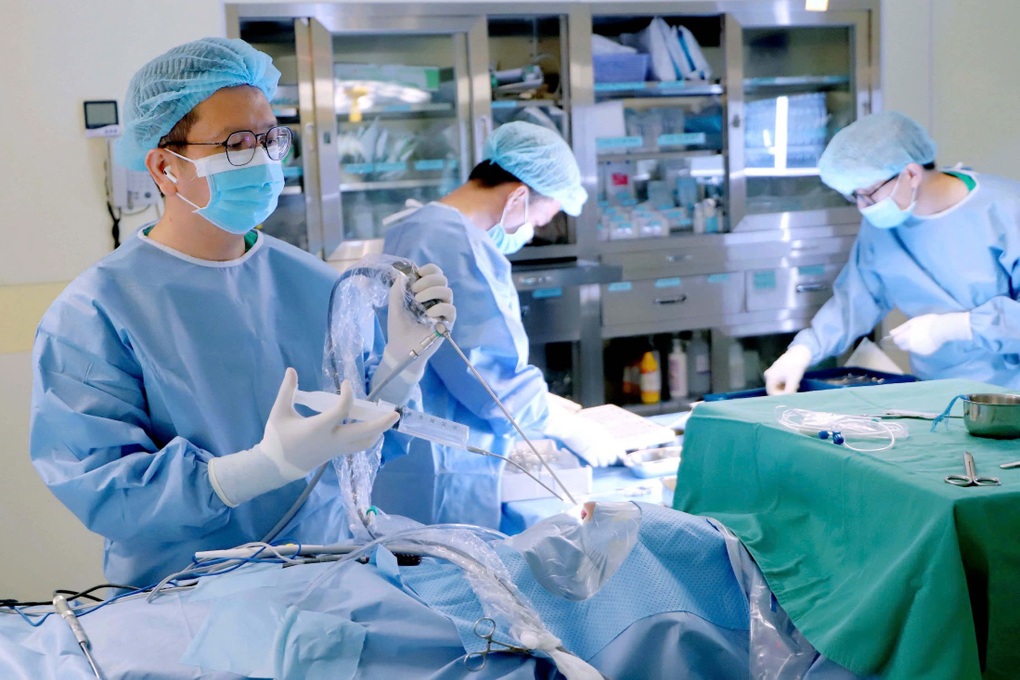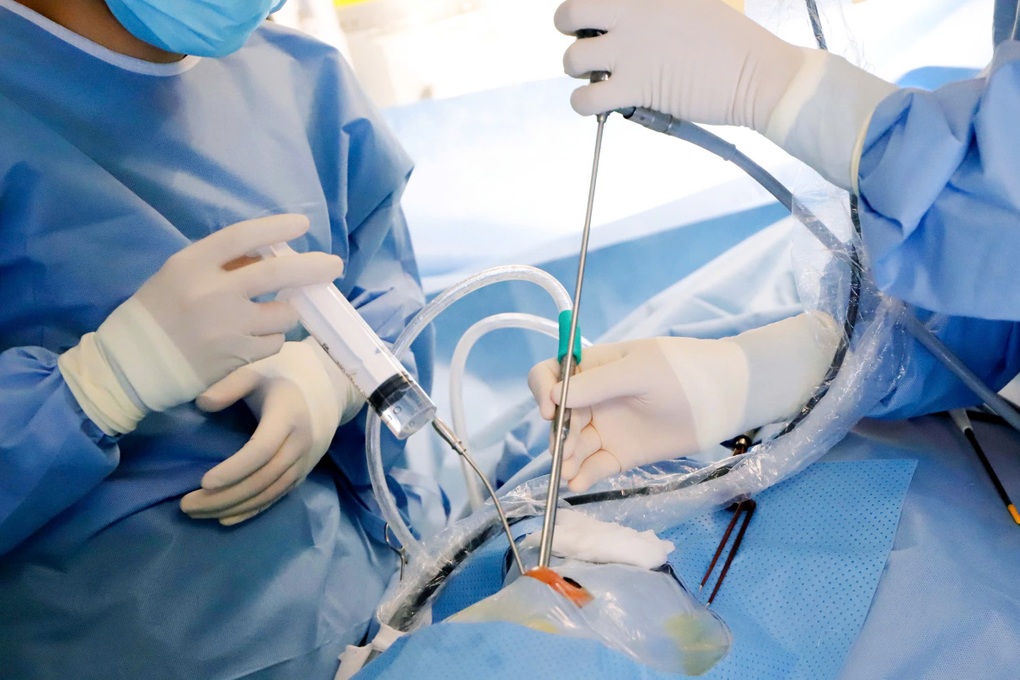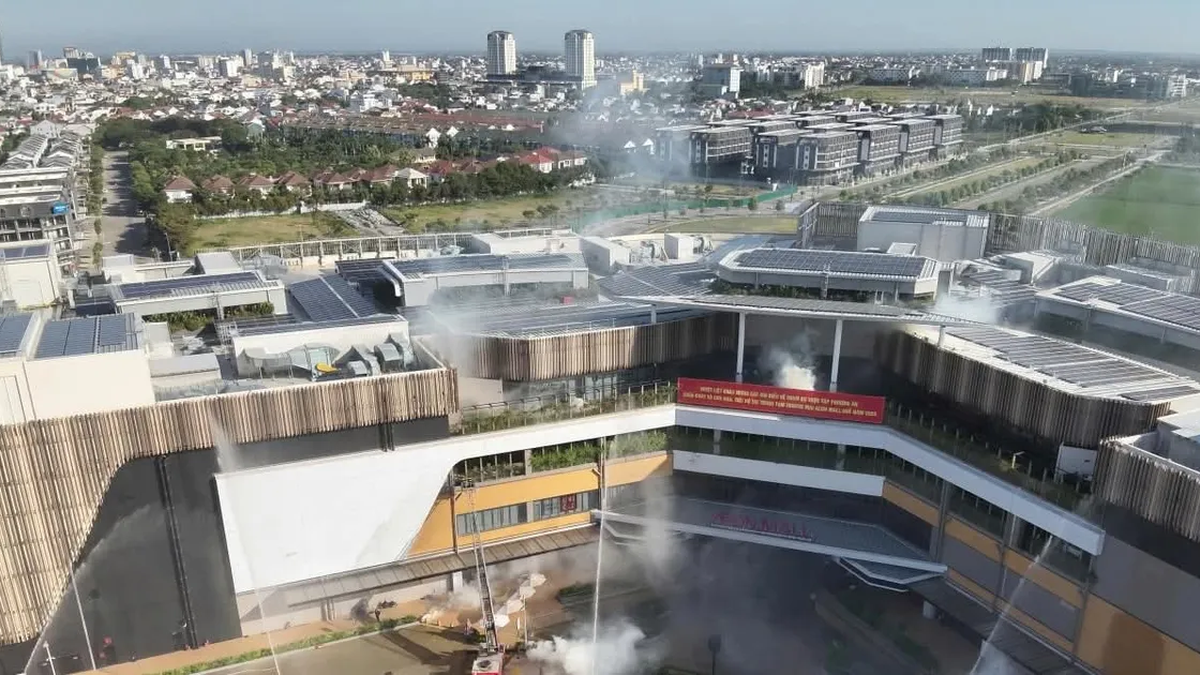Sudden drooping eyelids and loss of vision after a headache
Recently, Mr. S. (59 years old, living in Ho Chi Minh City) was admitted to the emergency room at Nam Sai Gon International General Hospital. According to his medical history, a week before, the man had headaches and dizziness, which progressed to drooping eyelids and loss of vision in his left eye.
At the hospital, he was found to have a brain tumor compressing his optic nerve, facing the risk of blindness.
Dr. Le Kham Tuan, Head of the Department of Neurosurgery - Spine, Nam Sai Gon International General Hospital shared that before being admitted to the hospital, the patient had suffered from prolonged headaches accompanied by abnormal conditions in the facial area, so the family was very worried.
Initially, the patient was diagnosed with a pituitary tumor of uncertain or unknown nature. This is a rather vague diagnosis, reflecting doubts about the nature of the brain tumor that appeared in the pituitary gland - a small gland that plays an important role in regulating many functions in the body.
To better determine the nature and severity of the tumor, doctors at Nam Saigon International General Hospital ordered the patient to undergo additional necessary clinical tests.
Through MRI results, doctors quickly identified a tumor measuring 14x7x22mm, located inside and above the pituitary gland, occupying space and compressing the optic nerve, causing drooping eyelids and reduced vision.

Doctors at South Saigon International General Hospital treat a patient (Photo: Hospital).
In addition, doctors also noted that the patient's left eye pupil was abnormally dilated and had weak light reflexes, warning that vision was being seriously affected.
"MRI images also showed that the tumor structure was heterogeneous and had an uneven response to contrast agents, and the mucosa of the sphenoid sinuses on both sides was also thickened.
This shows that the area around the pituitary gland is also being affected, possibly due to inflammation or side effects caused by the tumor," Dr. Tuan analyzed.
Complete removal of tumor by endoscopic surgery
Faced with the risk of the tumor causing dangerous damage to the man, the doctors decided to perform surgery using endoscopic surgery of the pituitary gland through the nose - sphenoid bone (the bone located deep inside the skull), helping to minimize invasiveness compared to traditional open surgery.
Timely surgery is also a decisive factor in preserving visual function and stabilizing the patient's endocrine system.

The patient underwent endoscopic surgery to treat the tumor (Photo: Hospital).
The surgical results were very successful. The treatment team completely removed the pituitary tumor through the sphenoid bone, and used a self-adhesive dural patch to seal the floor of the sella turcica, preventing the risk of infection and protecting the surrounding nerve structures.
In addition, the surgery also reduced pressure on the patient's optic nerves. After surgery, Mr. S. was able to sit up, eat normally, and communicate well, with his previous symptoms clearly improving.
Postoperative examination results showed that left eye vision gradually recovered, light reflexes improved, and pupil dilation and constriction returned to normal.
According to the Head of the Department of Neurosurgery - Spine, Nam Saigon International General Hospital, pituitary tumors are a relatively common disease but are very difficult to detect without clear signs.
Therefore, early examination when having symptoms such as prolonged headache, visual disturbances or hormonal changes is extremely important, helping to detect the disease early, thereby improving the effectiveness of treatment, avoiding dangerous complications later.
Source: https://dantri.com.vn/suc-khoe/can-benh-hiem-khien-nguoi-dan-ong-o-tphcm-bong-mat-thi-luc-doi-dien-mu-loa-20250515171750093.htm





































































































Comment (0)